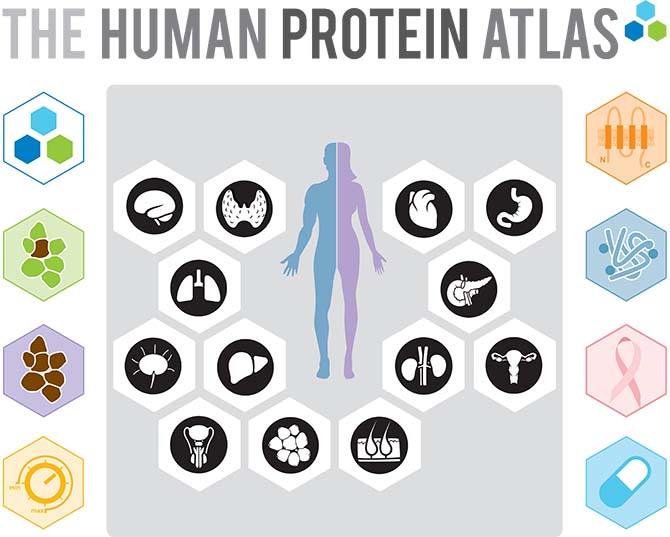Uhlen Group
The research is focused on protein science, systems biology and precision medicine and ranges from basic research in human and microbial biology to more applied research, including clinical applications in cancer, infectious diseases, cardiovascular diseases, autoimmune diseases and neurobiology.
The group is involved in many research projects in collaboration both with other divisions in the Department, but also in collaboration with many groups both nationally and internationally. The Human Protein Atlas program is an international effort started in 2003 with the aim to map all human proteins in cells, tissues and organs using integration of various omics technologies, including antibody-based imaging, mass spectrometry-based proteomics, transcriptomics and systems biology. The database has more than 300,000 visitors per month and it is one of the most visited biological databases in the world. The program was recently selected by the EU infrastructure ELIXIR as a core database resource due to its fundamental importance for a wider life science research community. Precision medicine is another important field of activities for the division. The dawn of many new omics tools for analysing clinical samples such as genomics, proteomics, transcriptomics and metabolomics has opened up new possibilities to study both health and disease with high throughput along with high analytical precision and clinical accuracy. We have used the resources created within the Human Secretome Project and the Human Protein Atlas program combined with the infrastructure built up in the Science for Life Laboratory to initiate a comprehensive “personal omics profile” program. Drug development is also an important part of the activities in the division to take the basic research into applications of societal importance.
The Uhlen lab heads the Human Protein Atlas program and is responsible for data management and visualization of the data in the program. The group is also active in the field of data-driven life science. The Al-Khalili lab is involved in research on neuromuscular disorders and the database Antibodypedia. The Fagerberg lab is responsible for the integration of multi-omics data, related both to the precision medicine efforts and the Human Protein Atlas program. A major focus of the effort is to pursue systems biology approaches related to large-scale data. The Edfors lab is focusing on targeted proteomics involving “in-house” developed methods for absolute quantification of proteins in blood and tissues
Publication list for Mathias Uhlen can be found at Google Scholar.


